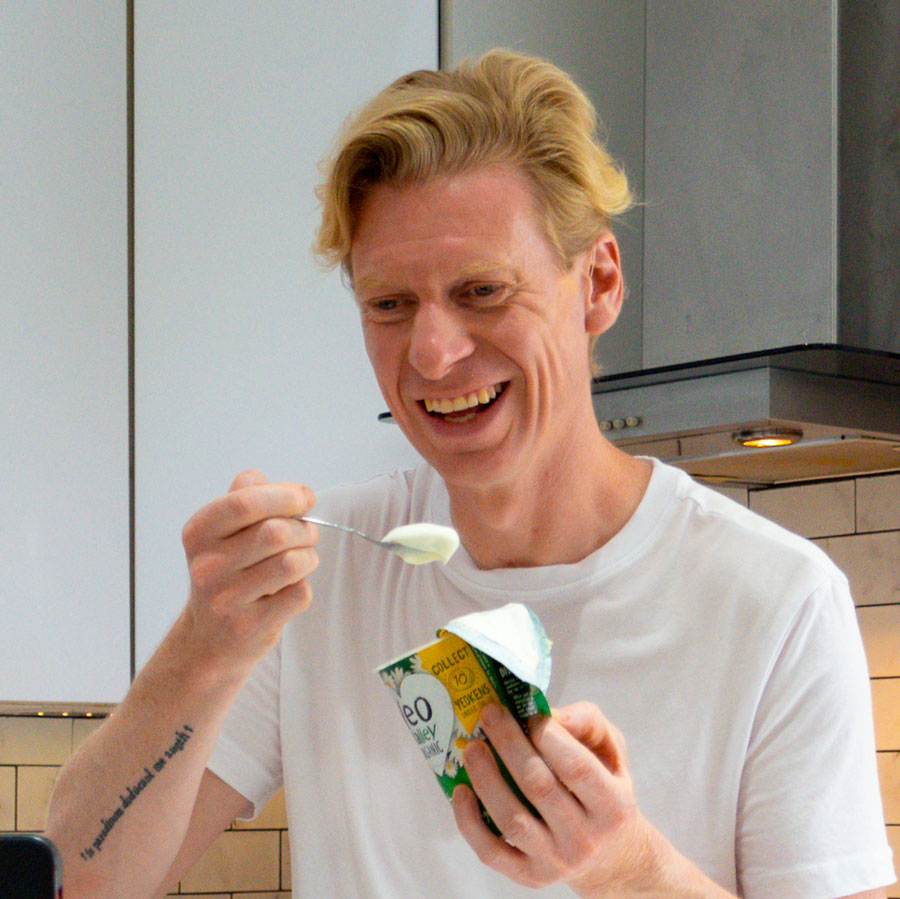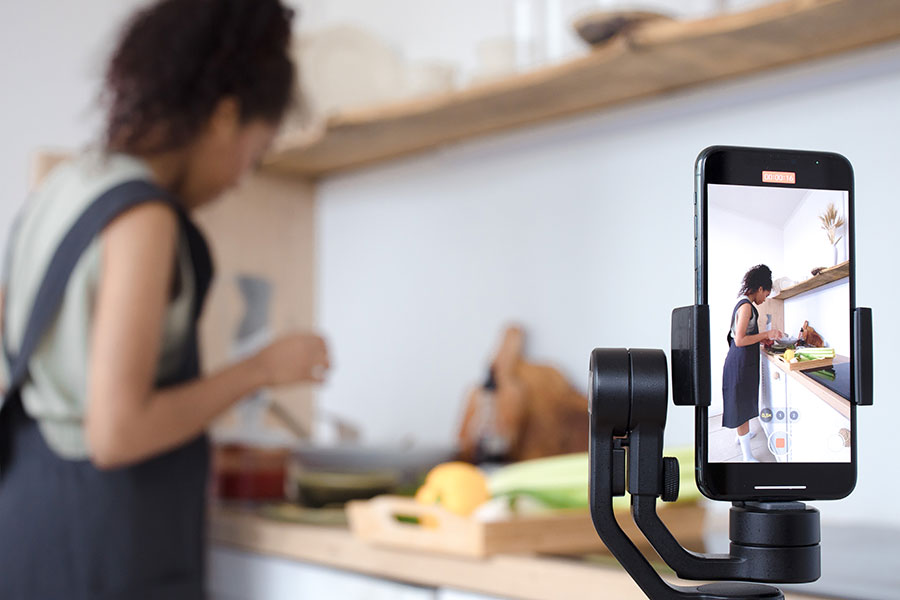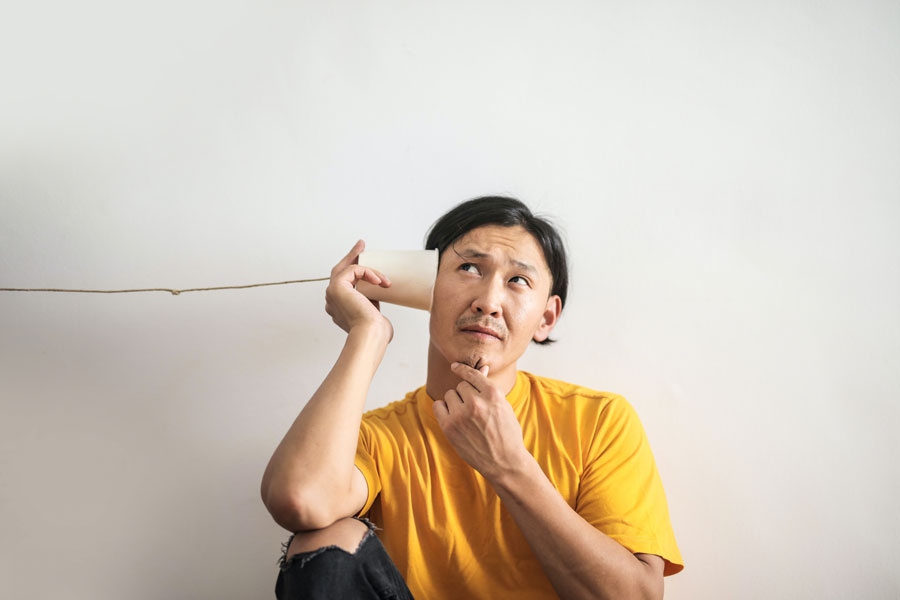Changing the way that people learn about food is my goal.
Recipes, reviews and critics flood our feeds while scientists and researchers struggle to make their voices heard. Between these two is a space, where the passion and love of food are combined with scientific knowledge that is accessible to a public audience. We have an opportunity to help people learn more about the source of food, the politics of food, the science of food, the history of food and the future of food.
It’s been my mission since 2015 to uncover how to do this.
In 2014 I began writing a food blog in the belief that I had something to say about food. I wrote recipes, took photographs and talked about food in the same boring, self-absorbed style as many other bloggers at that time. Addictive brownie recipes, aromas sparking childhood memories and the nuttiness of lentils. Yada yada.
Everyone has an intimate and personal relationship with food, meaning that every person also has strong opinions on the subject. Some of us decide to put our thoughts out on a public stage for others to see, such as recipe writers, content creators, journalists, authors, academic researchers and more. We’ve decided to open up our thoughts, opinions or well-research ideas about food for the benefit of others.
Gastronomes are always the loveliest people whose passion for fine food is intoxicating and unreservedly fun. Their love of food extends from the simplest fresh bread and salted butter to the finest dining in town. Their enthusiasm for food is unbounded, while less vocal about the geekier side of food, such as structural inequalities or the nutritional modelling required to help us reach net zero.
Food scientists and researchers, on the other hand, hold the key to the most mind-boggling and sometimes devastating information about the way food exists in our world. Their passion for digging into a topic until new knowledge is created helps to drive the progress of our planet forwards, building endlessly on the findings of their predecessors. This attention to detail can unfortunately limit their ability to talk clearly and concisely, often resulting in a slightly impenetrable library of knowledge.
Both groups are vital to the functioning of society and I’ve worked with both, however, I always felt there was a gap which needed filling.
My life changed in 2015 after I attended a talk at Borough Market about the future of food. Professor Tim Langwas on the panel, a leading academic whose knowledge of food and our global food system would make an encyclopaedia blush. He’s also blessed with the most avuncular public speaking persona this side of Sir David Attenborough. At that talk, Tim mentioned that of £196 billion spent on food in the UK each year, only 4% gets back to the farmers who grow or produce the raw ingredients.
Why didn’t I know this? In fact, why wasn’t this common knowledge? It was important information for the entire population, not just the audience at a small panel discussion for die-hard foodies. This should be on the six o’clock news! A few weeks after the talk, I found myself chatting with Tim at City University about studying there, and within no time I had graduated with a distinction in MSc Food Policy.
After graduation, I found myself facing the same predicament. I loved the science and research, yet, I wasn’t a researcher. I loved everything about eating great food, yet, I wasn’t a recipe developer or restaurant critic. I worked with universities, charities, and publications as a writer, consultant or photographer, yet still had a nagging sense that there was a better way to talk about food.
My father was a trading standards officer in a suburban corner of southwest London. His job involved mediating grievances from members of the public with businesses and then making a judgement about how to resolve the issue. Sometimes the business needed to pull its socks up or be taken to court, while other times the members of the public needed to be educated about their responsibilities or the limits of the law.
He wasn’t defending or representing either party, his role was to obtain the information required to determine how the situation should be resolved. This job gave him, and by extension myself, the ability to listen carefully to both sides of a story whilst remaining unjudgmental about both.
That skill was the missing piece about food. The ability to talk about the fascinating world of food without pushing an agenda on the viewer. Take the passion and enthusiasm of a gastronome and pay attention to the science like a researcher, then gift the audience with the knowledge and let them make their own decision. Give the audience enough respect to realise that nobody needs to be told what to do, they just need the information presented in a relevant and entertaining way.
That was the gap that I had been searching for, and that’s what I strive to do better each day.

Gavin is a consultant, writer & content creator helping people learn about our global food system. Every month his food policy TikToks and food waste challenges reach millions, helping people understand where their food comes from and how to use it more sustainably.
He also helps organisations around the world tell stories about food. He’s written in national titles and consulted on sustainable food systems for organisations across Europe, including the European Commission and WWF. His background in photography took him across Ecuador and Colombia chasing down the world’s finest chocolate and coffee for National Geographic and Huck. He’s spoken on TV and radio in the UK and US, and been featured in the national press, alongside titles as far afield as Mexico, Japan and Kazakhstan.




